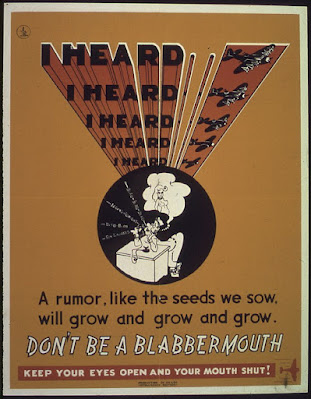The Politicization of Cancel Culture
Americans Knowledge Surrounding Cancel Culture
According to Sara Atske and the Pew Research Center(PRC), a nonpartisan research center that conducts public opinion polling about controversial topics, they found that out of the 10,093 US adults they asked if they had heard about cancel culture, only 44% knew either a "great deal" or "a fair amount." Now of course roughly ten thousand adults does not constitute the entire American population. On top of that, the general trend is that the people who know more about cancel culture are those using social media, thus younger people.
Like many things in this country that don't need to be politicized, cancel culture has sure enough made its way into the political world. Once again, cancel culture at the core is a way to boycott a person or company for something they said or did that people don't agree with and hold them accountable. Nothing about the generic definition has anything to do with the idea that politics is involved. So how did it find its way into the political world? Essentially as time has gone on, technology has improved, and turning to social media turned into a way to outcast people. Politicians began to also face the threat of being canceled and just everyday people with altering beliefs.How Americans Define Cancel Culture
So out of the 44% of Americans that have some understanding of what cancel culture is, how do they define it and what impact does political party have on this definition? Once again according to PRC the overwhelming response is that it is a way to ensure accountability. Now a majority of the people who answered in this fashion also identified themselves as liberal democrats representing 59% of the total responses. The other side is the conservative republicans who represented only 36% of the responses with the rest of the answers coming from conservative/moderate democrats or moderate/liberal republicans. The next most popular answer is "censorship of speech or history" and "mean-spirited actions taken to cause others harm." Out of both of these categories, the general trend represented is conservative republicans tend to agree more with these responses than liberal democrats do. So to make the claim that all liberals see it as a way to hold people accountable while conservatives see as a way to censor freedom of speech and attack people is false. However, this trend in the data is definitely apparent and is definitely a problem if the country does not see eye to eye on how this broad subject should be defined.
Cancel Culture in Politics
In today's day and age, people get offended for different things said or done. For example, a comment about a physical or cultural aspect of someone may get a laugh from them but could also heavily offend somebody else with the same aspect. The fact of the matter is that all people are different and are always going to be sensitive to comments in different ways. A general trend examined before is that the majority of conservative people see cancel culture as a way to attack someone or take away their freedom of speech. Moreover, a definition from a 50 year old conservative republican man from the PRC defines cancel culture as "trying to silence someone that does not have the same belief as you. Basically, [it’s] taking their First Amendment rights away. It violates affected people’s civil rights.”
Let me be clear that the purpose of cancel culture is not always to silence someone with an altering belief, the problem is that it is often used in that fashion. Take my high school once again as an example where anyone who was considered to be conservative was basically attacked for these beliefs. Moreover, anyone who is a first year and uses Snapchat can just look at the "University of Minnesota Class of 2026" snapchat story and know exactly what I am talking about. For those of you that don't know about that, a student started posting about his political beliefs and the overwhelming response was outrage by a majority of students. Anyways, people have used social media to attack these people for having altering beliefs. The question that people should start asking themselves is "how am I benefiting by saying anything to this person?" The negative side of cancel culture comes out when people start attacking each other for political beliefs and benefits quite literally no one. Attacking someone for their beliefs is only going to make the person defensive and not be open to be talking about these beliefs. If the goal is to change someone's beliefs of a certain topic, attacking them won't change that, having a conversation on the other hand, might.



Comments
Post a Comment